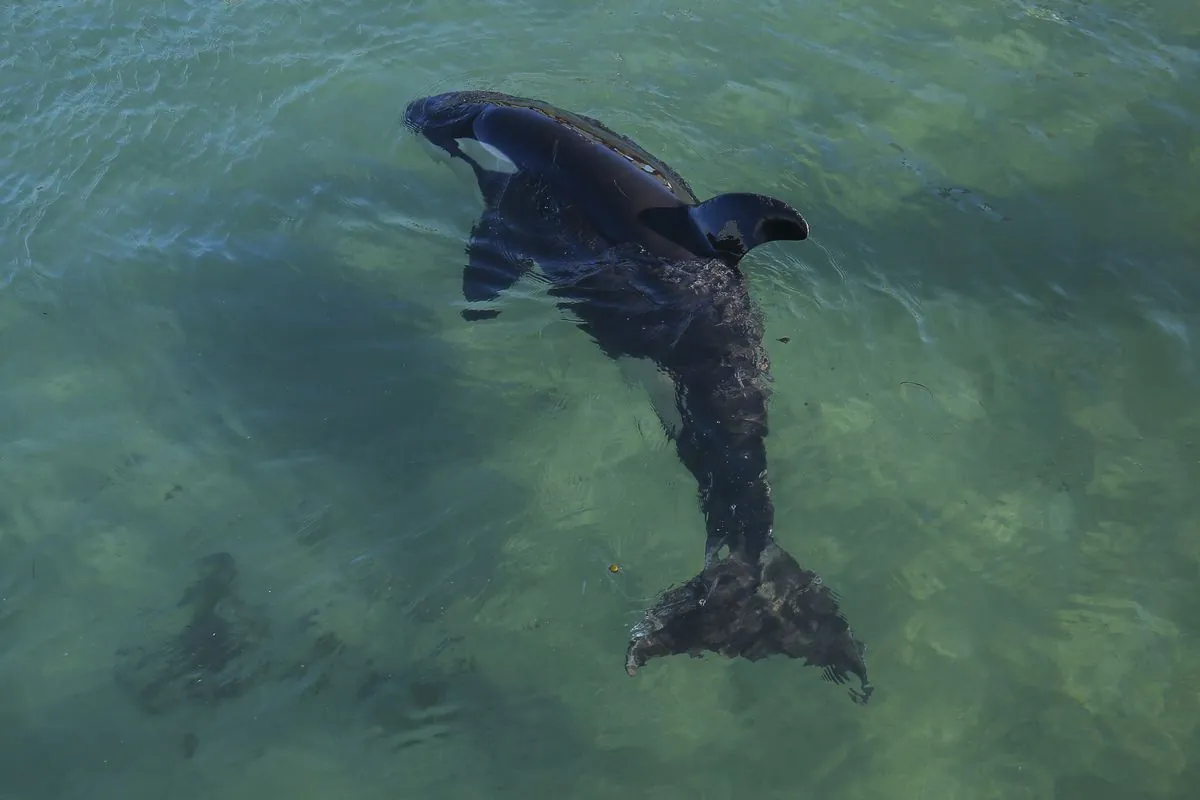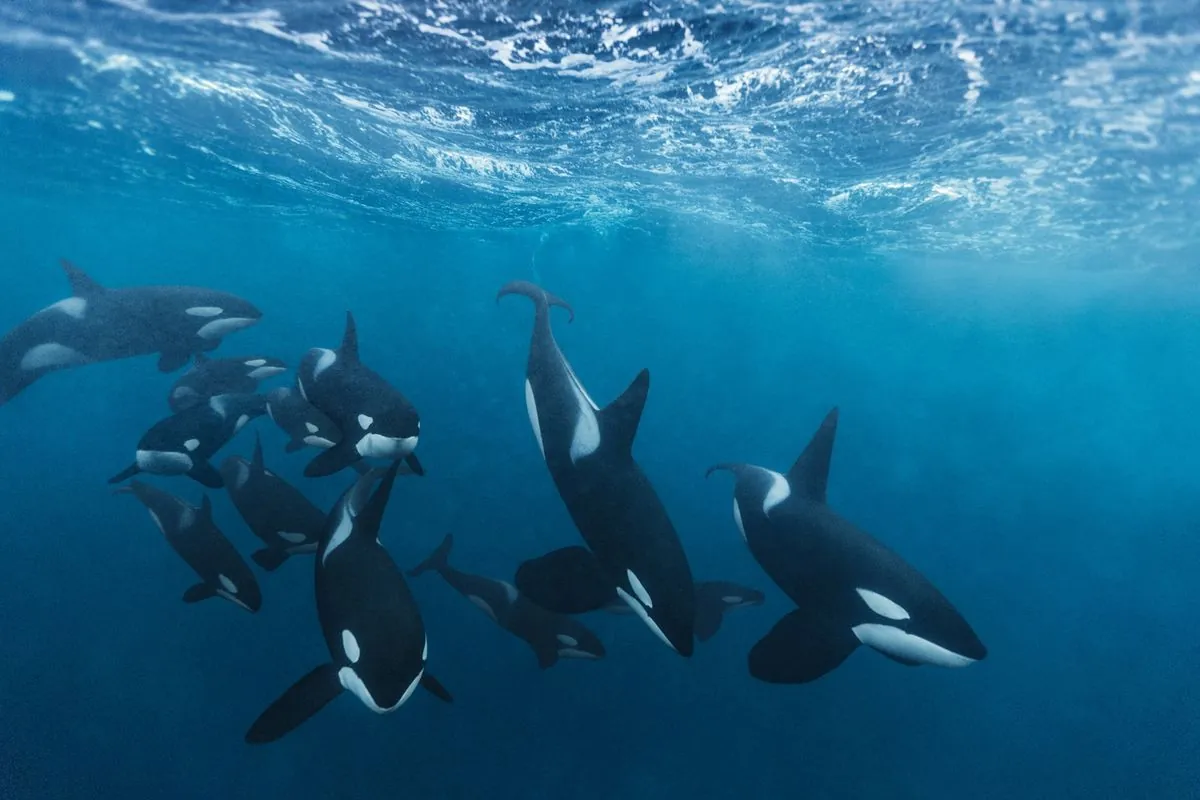Orca Family Stranded Again in Russian Far East Estuary
A family of killer whales has become re-stranded in a Russian estuary after a previous rescue attempt. Researchers speculate an injury may be preventing the group from reaching deeper waters.

In a concerning turn of events, a family of orcas has once again found themselves in shallow waters along Russia's far eastern coast. The group, consisting of two adults and two calves, had previously been assisted by researchers and volunteers in reaching deeper waters on October 2, 2024. However, the following day, they were reported to be stranded once more in the silted estuary of the Kamchatka Peninsula.
The Russian emergency ministry stated that despite initially swimming towards the open sea, the orcas were unable to locate the narrow exit from the estuary. As the tide receded, they found themselves trapped in shallow waters again. One of the whales was observed lying on its side, visibly distressed.
An unnamed source suggested that the family's reluctance to enter deeper waters might be due to an injury sustained by one of the group members. This speculation raises concerns about the pod's ability to navigate safely back to the open ocean.
Orcas, also known as killer whales, are remarkable marine mammals known for their intelligence and social behavior. These apex predators are found in all oceans worldwide, from the frigid Arctic and Antarctic regions to tropical seas. They are highly social animals, living in stable matrilineal family groups and demonstrating complex communication through distinct vocalizations known as dialects.
The average lifespan of wild orcas ranges from 50-80 years for females and 30-50 years for males. These magnificent creatures are the largest members of the dolphin family and are second only to humans in terms of global mammal distribution.
Orcas possess a diverse diet, feeding on fish, seals, sea lions, and even other whales. They are known for their sophisticated hunting techniques, which they pass down to their young through teaching. Some populations have been observed intentionally beaching themselves to catch seals on shore or working together to create waves that wash seals off ice floes.
These intelligent marine mammals use echolocation to navigate and hunt in dark or murky waters. They have excellent eyesight both above and below the water surface. Adult male orcas can be identified by their impressive dorsal fins, which can grow up to 1.8 meters (6 feet) tall.
The current situation in the Russian Far East highlights the challenges these animals can face in coastal environments. While some orca populations are known to intentionally approach shorelines for hunting purposes, prolonged periods in shallow waters can be dangerous for these large marine mammals.

As efforts continue to assist the stranded family, it's important to note that orcas have a gestation period of about 17 months. This long reproductive cycle underscores the importance of each individual to the overall population.
The plight of these stranded orcas serves as a reminder of the complex relationship between marine life and their environment. It also highlights the need for continued research and conservation efforts to protect these magnificent creatures and their habitats.
"Sadly, the animals could not find the narrow exit from the estuary and at low tide they found themselves in shallow water again."
As the situation unfolds, researchers and conservationists will likely continue their efforts to guide the orca family back to deeper waters, ensuring their safety and well-being. The outcome of this event may provide valuable insights into orca behavior and inform future rescue operations for stranded marine mammals.


































